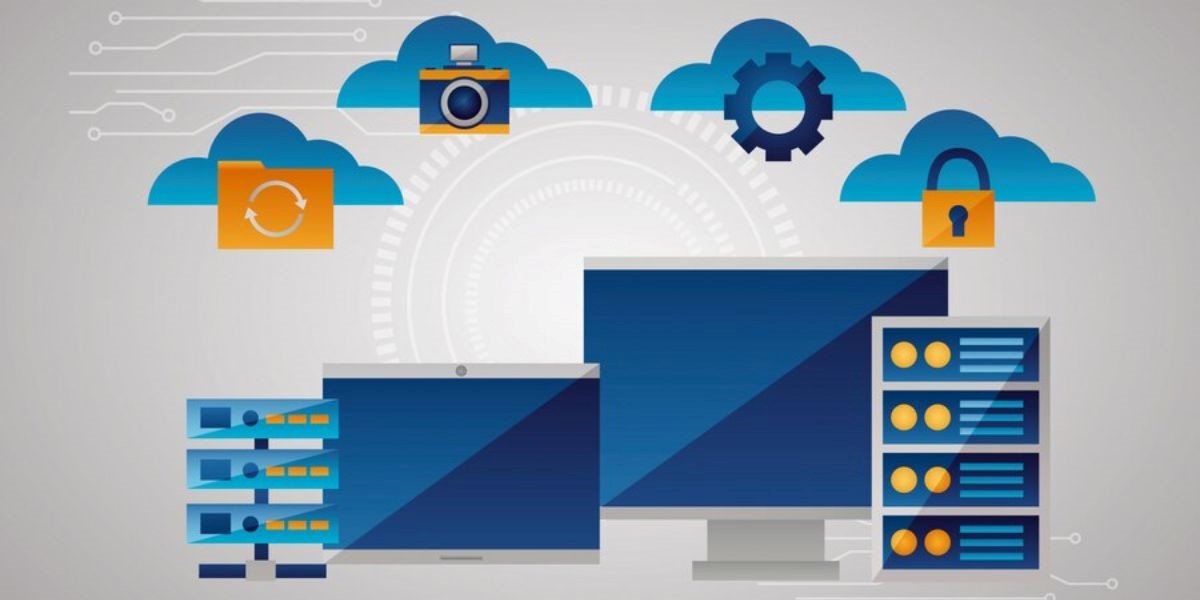
The online world is like a bay full of pirates—ready to hack your data and potentially blackmail you. Securing your data is not just essential—it’s your first and last line of defense. Servers offer maximum privacy and security.
In this blog, we’ll explore how servers enhance your data privacy and control through encryption, access management, and various protective protocols.
Servers help safeguard your information by securely storing it, limiting unauthorized access, and defending against breaches with technologies like firewalls and encryption. Whether you’re an individual or a business, understanding these practices can significantly improve your data protection strategies.
In today’s digital world, securing your data is crucial for maintaining privacy, ensuring control over your information, and preventing misuse. This blog explains how servers enhance privacy and control for both users and businesses.
We’ll explore:
Let’s dive into each of these key areas.
Servers play a vital role in providing secure, centralized data storage—whether online, offline, or on-site. They can be protected physically through surveillance, environmental controls, and access restrictions.
Digital protections include:
By combining these features, servers ensure greater transparency, traceability, and resilience against cyber threats.
Data security isn’t just a short-term fix—it’s a long-term investment.
Servers secure data using:
These methods work together to provide a robust defense against evolving cyber threats.
Here’s a closer look at how these security techniques work in practice:
Firewalls serve as gatekeepers between your server and the internet. They:
Firewalls can be hardware- or software-based, and are essential for any secure server infrastructure.
Encryption has been around since ancient Egypt—but today, it’s a core component of digital security. The idea is simple: encrypted data is unreadable without a decryption key.
If your data is intercepted, encryption ensures it remains useless to intruders.
Network segmentation divides a network into smaller segments to limit the spread of threats. If a breach occurs:
Techniques include VLANs (Virtual Local Area Networks) and physical segmentation, which help isolate different workloads and improve performance and security.
Strong authentication ensures that only authorized individuals can access server data.
The stronger your authentication, the harder it is for attackers to gain access.
IDS/IPS monitor server and network activity to detect and stop malicious behavior:
These systems are essential for protecting servers from brute-force attacks, malware, and other threats.
Keeping your server’s software and operating systems up to date is one of the easiest yet most effective ways to secure it. Updates often include:
Neglecting updates exposes your server to exploits that attackers actively target.
Servers can also enhance user privacy and help mask identities—especially in sensitive environments.
Proxy servers act as intermediaries between users and the internet. They:
VPNs encrypt data and hide your real location by routing traffic through remote servers. They’re ideal for:
Businesses handling sensitive customer data or intellectual property require high-level server protection. Key server features they seek include:
With the right server solutions, businesses can ensure secure data handling and reduce the risk of cyber incidents.
Offshore servers are hosted in countries outside your own to improve privacy or bypass local regulations. They’re used for:
Common offshore server types include:
Though they offer privacy and flexibility, offshore servers may involve higher costs and complex legal considerations.
Content delivery platforms benefit from dedicated streaming servers that provide:
Whether physical or virtual, these servers are optimized for uninterrupted media delivery and are crucial for video platforms, broadcasters, and online educators.
Server security plays a crucial role in protecting your personal or business data from unauthorized access, cyberattacks, and data breaches. Secure servers use encryption, firewalls, and other technologies to safeguard information and ensure that only authorized users can access it.
Encryption transforms your data into an unreadable format, ensuring that even if someone intercepts it, they cannot access the original information. SSL/TLS protocols encrypt data in transit, while AES encryption secures data at rest, providing robust protection for your sensitive data.
A firewall acts as a barrier between your server and potential cyber threats. It monitors and filters incoming and outgoing network traffic, blocking malicious access attempts and allowing only legitimate connections to reach your server.
Network segmentation involves dividing a network into smaller, isolated segments. This limits the spread of cyberattacks and reduces the risk of a single breach compromising your entire system. Each segment can have different security protocols, making it harder for attackers to penetrate the network.
Intrusion Detection Systems (IDS) and Intrusion Prevention Systems (IPS) monitor server and network activity for suspicious behavior. IDS alerts administrators to potential threats, while IPS takes immediate action to block malicious activity, preventing damage or data loss.
To improve server authentication, use strong, unique passwords, enable multifactor authentication (MFA), and consider using SSH keys for administrative access. These measures add layers of protection to ensure only authorized users can access sensitive data.
Yes, businesses can enhance their security by utilizing servers with strong encryption, access control, and compliance monitoring features. These servers ensure that sensitive customer data and intellectual property remain protected from unauthorized access.
Regularly updating your server’s software and security patches is essential for maintaining long-term security. Staying current with updates ensures that your server remains protected from known vulnerabilities and minimizes the risk of cyberattacks.
We’ve thoroughly explored how servers provide enhanced privacy and control, with practical applications for individuals and businesses. From firewalls to encryption, from network segmentation to offshore solutions—servers are at the core of modern digital security.
We offer premium packages designed to meet your business and personal needs. OffshoreServers.NET delivers reliability, flexibility, and top-tier security at competitive prices.
Contact us today to learn more or to rent your ideal offshore server solution.
We Accept Bitcoin, Litecoin, Dash, PayPal & Perfect Money